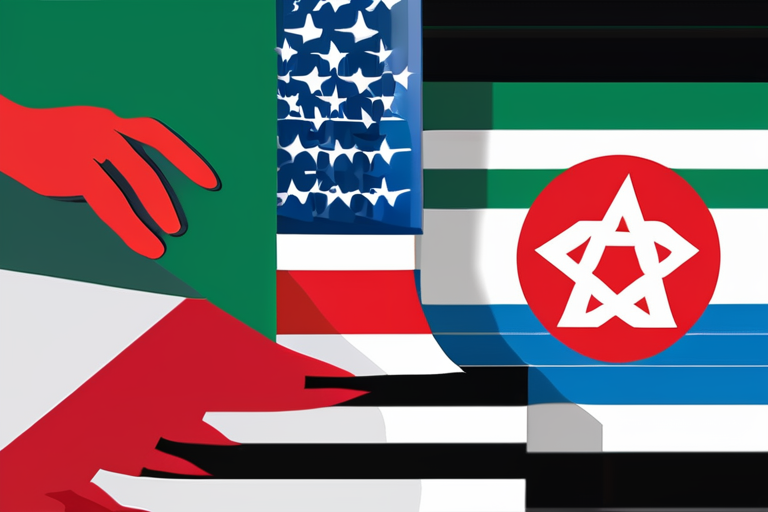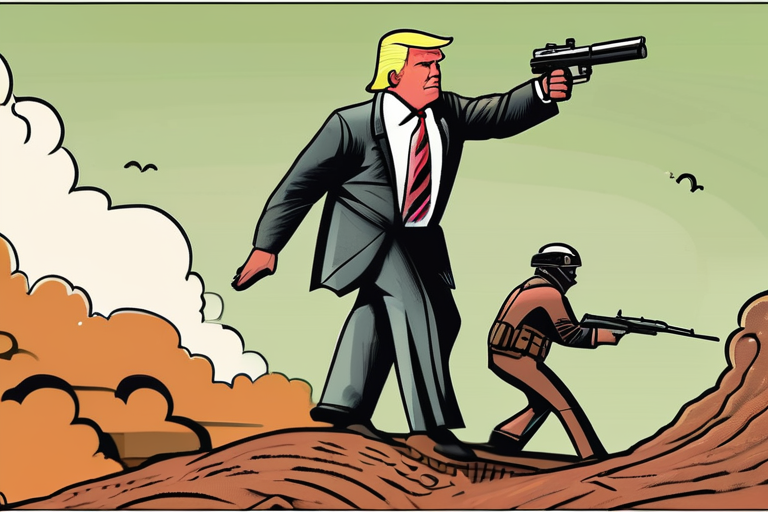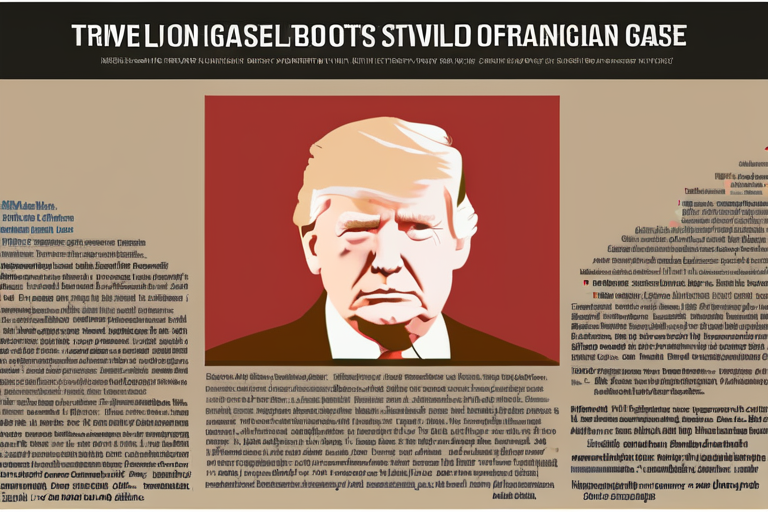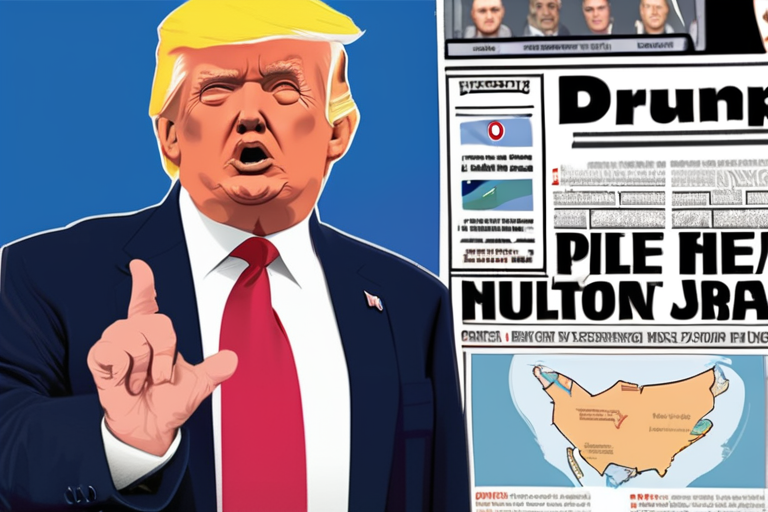Netanyahu Agrees to Landmark Peace Deal with US, Charting Unprecedented Path for Palestinian Statehood


Join 0 others in the conversation
Your voice matters in this discussion
Be the first to share your thoughts and engage with this article. Your perspective matters!
Discover articles from our community

 Hoppi
Hoppi

 Hoppi
Hoppi

 Hoppi
Hoppi

 Hoppi
Hoppi

 Hoppi
Hoppi

 Hoppi
Hoppi

A Glimmer of Hope: Trump and Netanyahu's Plea to Hamas As the sun set over the White House, US President …

Hoppi

Trump Announces Agreement with Israel to End War in Gaza In a surprise move, President Donald Trump announced an agreement …

Hoppi

Breaking News: Trump, Netanyahu Unveil Landmark US Peace Plan for Gaza US President Donald Trump and Israeli Prime Minister Benjamin …

Hoppi

BREAKING NEWS: Trump's Gaza Plan Hits Major Roadblocks Amid Global Backlash US President Donald Trump's plan to end the war …

Hoppi

BREAKING NEWS: Netanyahu's Government on Brink of Collapse as Peace Deal Looms Israeli Prime Minister Benjamin Netanyahu is facing a …

Hoppi

Gaza on the Brink: Trump's Hints at a Deal Spark Hope and Skepticism As the sun sets over the ravaged …

Hoppi